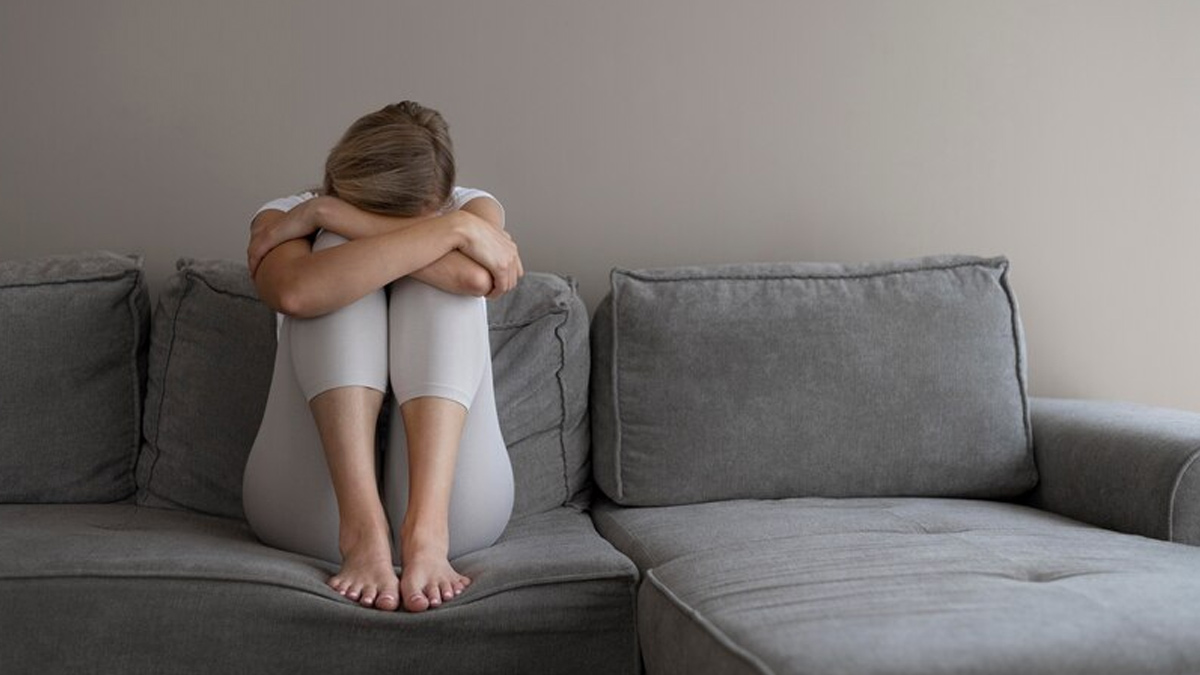
When it comes to digestive problems like Irritable Bowel Syndrome (IBS) and chronic constipation, the focus is often on abdominal discomfort, bloating, and irregular bowel movements. However, what many people don’t realise is that these gastrointestinal issues can also have a significant impact on sexual health, leading to painful intercourse. This often-overlooked connection can create a vicious cycle of physical and emotional distress, making it crucial to understand how digestive health influences sexual well-being and what steps can be taken to alleviate these symptoms.
Table of Content:-
To understand how digestive problems can cause painful intercourse and how to reduce it, OnlyMyHealth team interacted with Dr Ritambhara Bhalla, Associate Director, Department of Gynaecology and Cloudnine Group of Hospitals, Chandigarh.
Dr Bhalla said, “Yes, digestive problems such as Irritable Bowel Syndrome (IBS) and constipation can indeed cause painful intercourse, a condition medically known as dyspareunia. These digestive issues can have a direct and indirect impact on sexual health, leading to discomfort and pain during intercourse.” Understanding the connection between these conditions and painful intercourse involves looking at the anatomical, physiological, and psychological factors involved.
1. Anatomical and Physiological Connections

The digestive and reproductive systems are anatomically close, especially in women. The intestines, colon, and rectum are in close proximity to the vagina and uterus. When a person suffers from IBS or constipation, the discomfort and bloating associated with these conditions can create pressure in the pelvic region. This pressure can lead to pain during intercourse as the inflamed or irritated bowel may press against the vagina and surrounding tissues.
IBS and pelvic pain: IBS is characterised by symptoms like abdominal pain, bloating, diarrhoea, and constipation. “The chronic nature of these symptoms can lead to an overall heightened sensitivity in the pelvic area, a condition known as visceral hypersensitivity. This heightened sensitivity means that even normal sexual activity may be perceived as painful. Additionally, the muscle contractions associated with IBS can lead to pelvic floor dysfunction, further contributing to pain during intercourse,” Dr Bhalla explained.
Constipation and dyspareunia: “Constipation can cause a buildup of stool in the colon, which can result in increased pressure and discomfort in the lower abdomen and pelvis. This pressure can make intercourse painful, especially during penetration, as the vagina and rectum are closely situated,” Dr Bhalla said, adding, “The discomfort from constipation can also lead to a tightening of the pelvic floor muscles, a reflexive response to pain, which can further exacerbate pain during sexual activity.”
2. Psychological Impact

The chronic nature of IBS and constipation can have a significant psychological impact, which can, in turn, affect sexual health. Anxiety, stress, and fear of pain can contribute to a cycle of discomfort and avoidance of sexual activity.
Anticipatory anxiety: Individuals with chronic digestive issues may develop anxiety about potential pain during intercourse. According to Dr Bhalla, this anxiety can lead to a lack of sexual arousal and lubrication, further increasing the likelihood of pain during sex. The anticipation of pain can also cause involuntary tightening of the pelvic muscles, making intercourse more difficult and uncomfortable.
Body Image and self-esteem: Digestive problems like IBS can cause bloating and changes in bowel habits, which might affect body image and self-esteem. “Individuals may feel less confident or attractive, leading to decreased sexual desire and satisfaction. This emotional strain can worsen the experience of pain during intercourse, creating a negative feedback loop that impacts both physical and emotional well-being,” Dr Bhalla said.
Also read: Understanding Sexsomnia: The Sleep Disorder You've Probably Never Heard Of
3. Management and Treatment

Addressing the pain associated with intercourse due to IBS or constipation requires a comprehensive approach that includes both medical and psychological interventions:
- Medical treatment: Managing IBS and constipation through dietary changes, medications, and lifestyle modifications can help alleviate symptoms and reduce pelvic discomfort. A healthcare provider may recommend a diet high in fibre, increased fluid intake, and regular physical activity to ease constipation. For IBS, medications that target specific symptoms, such as antispasmodics or laxatives, may be prescribed.
- Pelvic floor physical therapy: For individuals with pelvic floor dysfunction related to IBS or constipation, pelvic floor physical therapy can be beneficial. This therapy focuses on strengthening and relaxing the pelvic floor muscles, reducing pain during intercourse.
- Psychological support: Counselling or therapy can help address the anxiety and emotional distress associated with chronic digestive issues and painful intercourse. “Cognitive-behavioural therapy (CBT) and mindfulness practices can be particularly effective in managing stress and improving sexual health,” Dr Bhalla said.
Conclusion
Digestive problems like IBS and constipation can cause painful intercourse due to the close anatomical relationship between the digestive and reproductive systems, as well as the physiological and psychological impacts of these conditions. By managing the underlying digestive issues and addressing any associated psychological factors, individuals can often find relief from dyspareunia and improve their overall quality of life. Seeking professional help from healthcare providers, including gastroenterologists, gynaecologists, and pelvic floor therapists, is crucial in effectively addressing these concerns.
Also watch this video
How we keep this article up to date:
We work with experts and keep a close eye on the latest in health and wellness. Whenever there is a new research or helpful information, we update our articles with accurate and useful advice.
Current Version